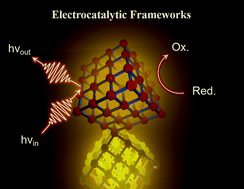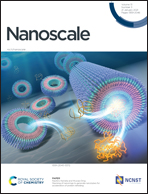Operando spectroscopy of nanoscopic metal/covalent organic framework electrocatalysts
Abstract
Metal and covalent organic frameworks (MOFs and COFs) are increasingly finding exceptional utility in electrocatalytic systems. Their chemically defined porous nature grants them key functions that may enhance their electrocatalytic performance relative to conventional molecular or heterogeneous materials. In order to obtain insights into their function, mechanism, and dynamics under electrocatalytic conditions, operando spectroscopy, that which is performed as the catalyst is functioning, has been increasingly applied. This mini review highlights several key works emerging in recent years that have used various operando spectroscopic techniques, namely UV-vis absorption, Raman, Infrared, and X-ray absorption spectroscopy, to investigate electrocatalytic MOFs and COFs. A brief introduction to each technique and how it was applied to investigate MOF/COF-based electrolytic systems is detailed. The unique set of data obtained, interpretations made, and progress attained all point to the power of operando spectroscopy in truly opening the functionality of MOFs and COFs across many aspects of catalysis.

- This article is part of the themed collections: Recent Review Articles and Nanoscale 2021 Emerging Investigators


 Please wait while we load your content...
Please wait while we load your content...